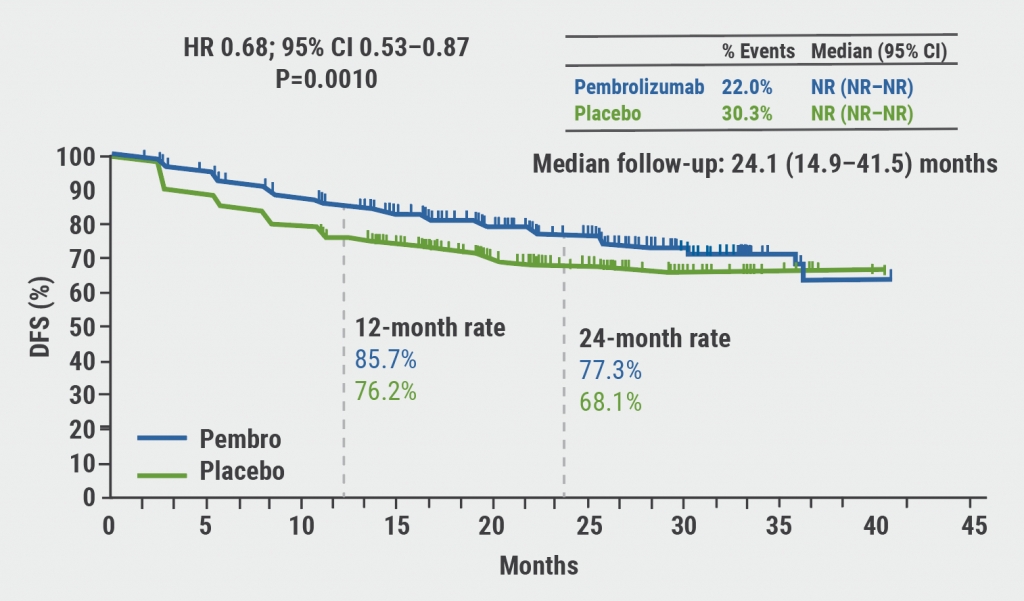Merck and Eisai, which paid for the study of 1,069 volunteers, announced November 10 that the combination had shown better progression-free survival, overall survival and a better objective response rate, but had failed to disclose any numbers, declining to even declare the actual number of enrollees.
Median progression-free survival was 23.9 months with the combination versus 9.2 months with sunitinib, a 61% reduction in disease progression or death (P<0.001). The combination also improved the odds of overall survival by 34% (P=0.005).
The phase 3 trial also compared the combination of lenvatinib and everolimus against sunitinib. In that arm, progression-free survival was 35% longer (P<0.001) but overall survival was actually shorter, although not significantly so (P=0.30).
The results were reported virtually at the American Society of Clinical Oncology's Genitourinary Cancers Symposium and online by the New England Journal of Medicine.
SOURCE: https://bit.ly/2Z3BxyC The New England Journal of Medicine, online February 13, 2021.
By Reuters Staff
Posted on
Previous Article
« Hirschsprung disease tied to increased risk of inflammatory bowel disease Next Article
Study points to best prognostication models for systemic mastocytosis »
« Hirschsprung disease tied to increased risk of inflammatory bowel disease Next Article
Study points to best prognostication models for systemic mastocytosis »
Related Articles

May 21, 2019
Renal cell carcinoma


© 2024 Medicom Medical Publishers. All rights reserved. Terms and Conditions | Privacy Policy

